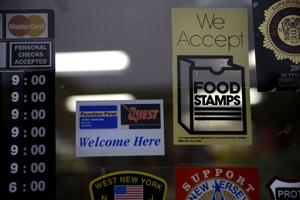Bill to make changes to Ohio public assistance programs met with large opposition

(The Center Square) – More than 40 individuals and organizations lined up Wednesday to oppose a bill in the Ohio Senate that, according to its sponsor, makes wide-ranging changes to many of Ohio’s public assistance programs.
In the third hearing for Senate Bill 17 before the Government Oversight and Reform Committee, witnesses representing food banks, the American Cancer Society, churches and many other organizations said the proposed legislation damages the state’s first line of defense against hunger.
“The claims and assertions that have been made by proponents of SB 17 are not based in current law, fact or reality,” Lisa Hamler-Fugitt, executive director of the Ohio Association of Foodbanks, testified Wednesday. “In fact, it is yet another in a long list of misguided and wasteful bills that would severely limit and deter participation in SNAP.”
Bill sponsor Sen. Tim Schaffer, R-Lancaster, called the plan a way to reduce fraud and help businesses across Ohio.
The legislation, if passed and signed, would make significant changes to the state’s SNAP food stamp program, unemployment compensation and Medicaid. It would establish anti-fraud and anti-waste measurers for food stamps – one of which would be requiring a photo ID – and unemployment, while adding work requirements for Medicaid.
It also proposes measurers that would tighten the unemployment system to help avoid fraudulent claims.
“I’m proud to sponsor this long overdue piece of legislation,” Schaffer said. “Many Ohioans have lost jobs, health insurance and are suffering food insecurity. They need help, and as long as we ignore the fraud and abuse, these crimes drain our programs of resources from those who need them.”
Hamler-Fugitt, however, said the majority of wrong SNAP payments come from administrative errors, and the program has the lowest documented fraud rate of any publicly funded programs.
American Cancer Society Director of Ohio Government Relations Bryan Hannon told the committee the bill significantly could affect cancer patients and survivors by adding a Medicaid work requirement.
“Multiple provisions included in SB 17 would jeopardize thousands of cancer patients and survivors’ eligibility for or access to the state’s Medicaid program,” Hannon testified. “Requiring individuals to comply with work requirements as a condition of Medicaid eligibility fails to recognize the complex, chronic conditions that thousands of cancer patients and survivors struggle to manage on a daily basis.”
Disclaimer: This content is distributed by The Center Square

